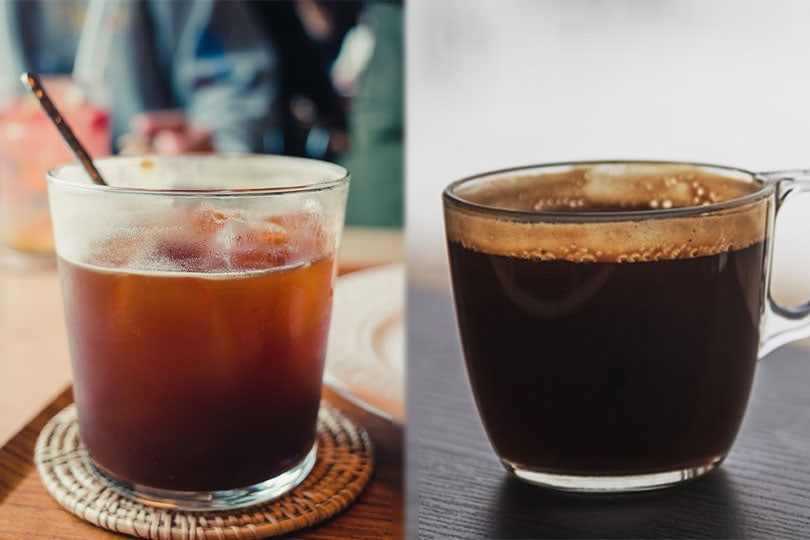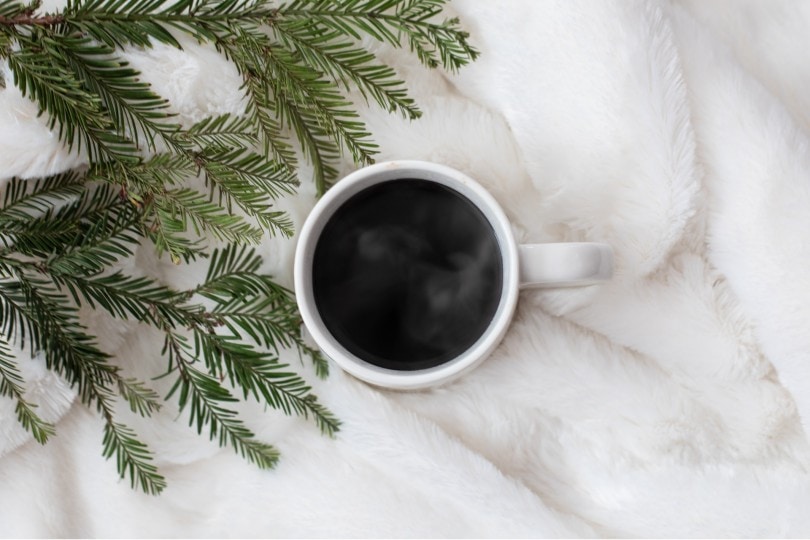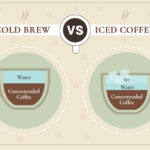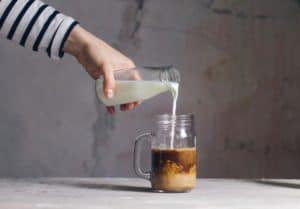
It may be a tough decision to pick between an iced tea and a coffee when your day needs a refreshing boost. Both options are tasty and may offer health benefits, aside from the caffeine content. However, if you’re looking to lower your caffeine consumption, iced tea will probably be your best bet.
A standard 8 oz. cup of hot, brewed black tea carries about 25-48 mg of caffeine. A home-brewed cup of coffee that’s the same size has significantly more, ranging from 70-140 mg of caffeine. The exact amount depends on the bean and the brewing method. Iced tea typically has even less caffeine than hot tea due to the brewing method and the addition of ice, so it’s the least caffeinated option of the three. Here’s a quick look at how iced tea and coffee compare:

A Quick Look at Content: Caffeine in Tea vs. Coffee

| Caffeine in Popular Tea Drinks per 8 oz. | Caffeine in Coffee Beverages per 8 oz. |
| Hot black tea: 25-48 mg. | Hot black coffee: 70-140 mg. |
| Hot green tea: 25-29 mg. | Espresso shot: 64 mg. |
| Iced black tea: 47 mg. | Iced black coffee: 165 mg. |
| Iced green tea: <50 mg. | Cold brew: 100 mg. |
How Much Caffeine in Iced Tea?
Iced tea contains significantly less caffeine than hot tea, but the exact number can’t be calculated because it depends on how long it’s brewed and how much ice is added to the final product. Since hot black tea contains no more than 48 mg and hot green tea holds no more than 29 mg, it’s definitely safe to say that iced tea has no more than 50 mg of caffeine at most. The actual amount of caffeine in iced tea is probably closer to 30-45 mg.
Of course, if you’re really trying to eliminate your caffeine consumption, decaf iced tea is always an option. Just remember that even decaf drinks still contain a trace amount of caffeine.
If you really don’t want to risk it, try an herbal tea such as hibiscus tea. These teas are truly decaf because they naturally don’t contain caffeine. They also make yummy, refreshing iced tea beverages.
How Much Caffeine in Coffee?
There isn’t a one-size-fits-all approach to caffeine in coffee because there are infinitely more variables than tea. However, it’s safe to say that a home-brew carries less caffeine than commercially brewed coffee. On the whole, coffee has more caffeine than tea unless it’s decaf and even decaf coffee may not be completely caffeine-free.

Where Does the Caffeine Come from in Iced Tea & Coffee?
Unlike soda and energy drinks which have artificially added caffeine, tea leaves and coffee beans are naturally caffeinated. The only exception would be herbal teas. Black and green teas come from the Camellia sinensis plant, but herbal teas are derived from other botanical sources, such as ginger tea from the ginger plant. Purely herbal teas are typically caffeine-free if they’re not blended with green or black tea but check the package first to be sure.
The Bottom Line
Tea almost always contains less caffeine than coffee unless it’s a decaf cup-of-Joe. The only 100% caffeine-free coffee or tea is an herbal tea because it doesn’t usually have any naturally occurring caffeine.
Iced tea has even less caffeine than hot tea because of the brewing method and the fact that the drink is diluted because of the melted ice. If you’re looking for a refreshing drink with a minor buzz, an iced tea is probably the drink for you. If you’re looking for a drink to fuel your day, you’re probably better off with any type of coffee.
Related Reads:
- Caffeine in Tea vs. Soda: Which Has More? By How Much?
- Caffeine in Green Tea vs. Coffee: Which Has More? By How Much?
Featured Image Credit by: Left – Iced Tea (naytvedelayt, Pexels) | Right – Coffee (Paul Hanaoka, Unsplash)













